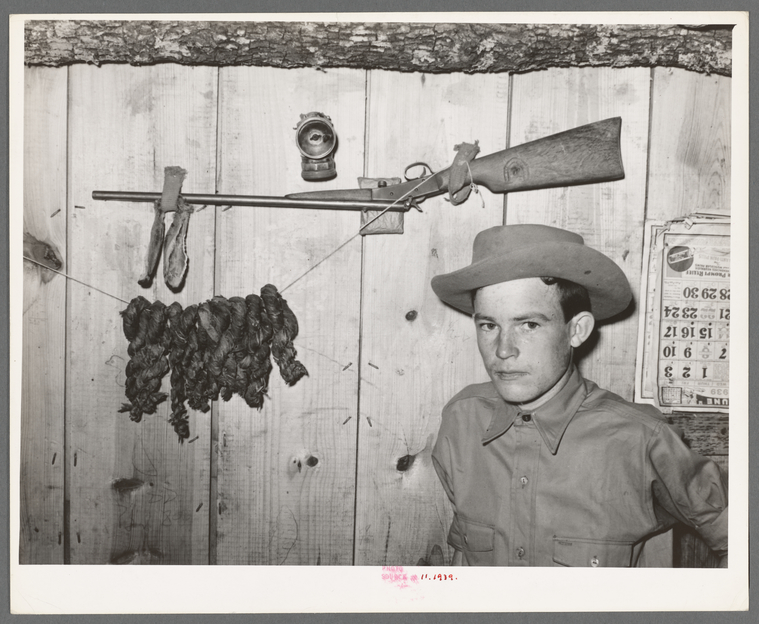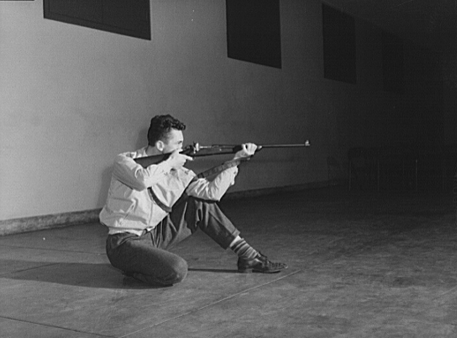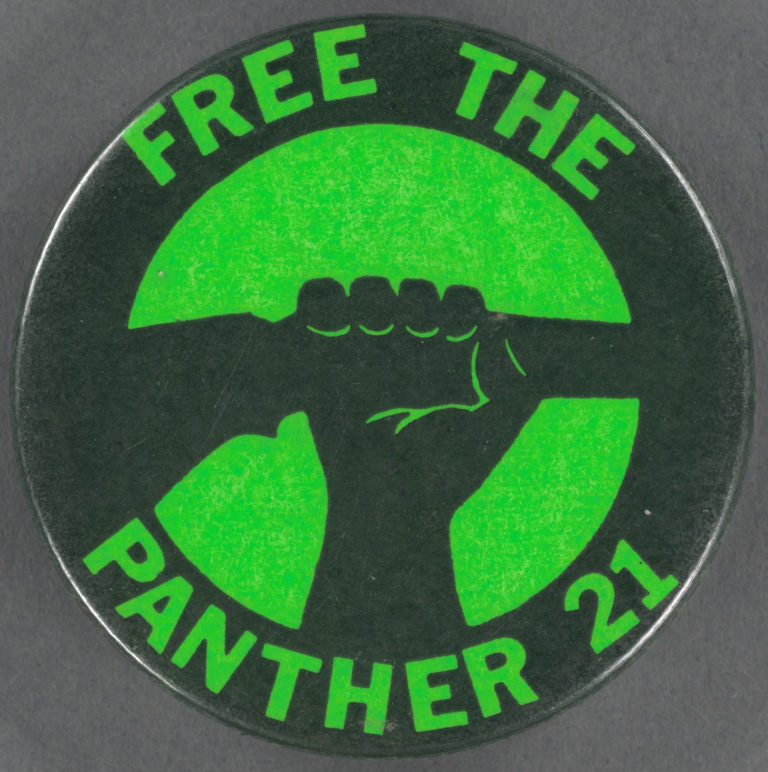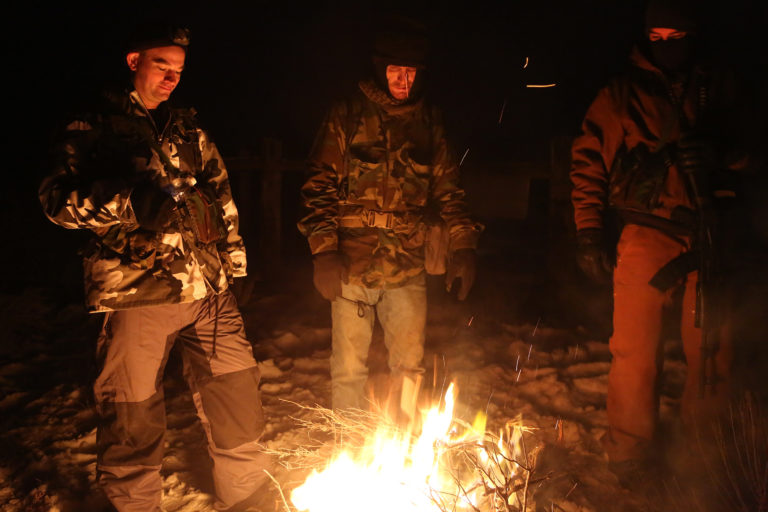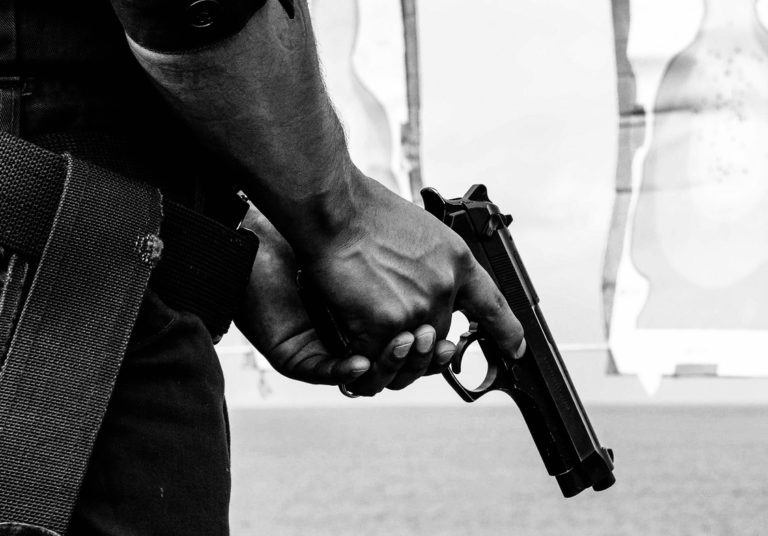This introduction examines gun culture in the United States and argues that it is a product of the longstanding practices of settler colonialism, anti-Blackness, and misogyny that have shaped life in the United States. Invoking an anthropological definition of culture, it argues that gun violence is a central facet of US political and social life and that performances of gun use and ownership, particularly when enacted by white men, embody a kind of “racial sovereignty,” or a violent limitation of the practical applicability of citizenship to those who promulgate whiteness, maleness, and violence as primary markers of full belonging in the civic community.
Gun Culture
Edited by Lindsay Livingston and Alex Trimble Young
This special section examines gun culture in the United States as a product of the longstanding practices of settler colonialism, anti-Blackness, and misogyny. Invoking an anthropological definition of culture, it argues that gun violence is a central facet of U.S. political and social life and that performances of gun use and ownership, particularly when enacted by white men, embody a kind of “racial sovereignty,” or a violent limitation of the practical applicability of citizenship to those who promulgate whiteness, maleness, and violence as primary markers of full belonging in the civic community.
The Self-Defeating Notion of the Sovereign Subject in US Gun Culture
The politicization of U.S. gun culture since the 1970s has popularized the idea that individual freedom and security is dependent upon the reclamation of traditionally defined sovereign powers. In this article, I outline how the exercise of popular sovereignty is a social relation of rule often involving extra-legal forms of violence, which regularizes unequal levels of vulnerability and security among various groups. I then address how the so-called sovereign subject, thought to be at the root of popular sovereignty, is conceptually contradictory and practically self-defeating. In practice, attempts to return to a supposed pre-political condition of personal sovereignty in order to secure individual freedom involves dismantling the very social conditions that enable such freedom in the first place.
On Civil Rights, Armed Citizens®, and Historical Overdose
Today’s radically sovereign Armed Citizen®—a commodity fetish trademarked by the NRA—derives his representational and ethical power from fantasies of self-defensive heroism rooted in historical distortions that obscure the traces of armed settler colonialist violence and racial capitalism. Such historical “overdose” flattens anti-racist civil rights activism, making us “complaisant hostages” of a selective memory that serves self-destructive, necropolitical structures today.
The Necropolitics of Liberty: Sovereignty, Fantasy, and United States Gun Culture
This article approaches the speculative fiction of the survivalist right as an archive that can illuminate the continuities between the fantasies of necropolitical power that animate the radical right and undergird the sovereignty of the United States. Focusing on Malheur National Wildlife Refuge occupier LaVoy Finicum’s 2015 novel Only by Blood and Suffering: Regaining Lost Freedom, this essay argues that such survivalist fiction, in imagining a future civil conflict that enables the reinstatement of Lockean property rights, should be understood as settler colonial rather than anti-statist. In representing the dystopian future in which “public lands” are reopened as a frontier, survivalist novels like Finicum’s reaffirm, rather than challenge, the fantasy that produces the constituted power of the United States.
Good [Black] Guys With Guns: Performance and the Anti-Black Logic of US Gun Culture
This article examines the police shooting of twenty-one-year-old E.J. Bradford at the Riverchase Galleria in Hoover, Alabama on November 22, 2018. After a brief investigation, the Alabama Attorney General’s Office absolved the officer who shot Bradford of any wrongdoing. Through a close reading of the Alabama AG’s report and a performance analysis of Bradford’s actions that night, this article argues that Bradford behaved exactly as he was trained to as a concealed carry permit holder and former enlistee in the Army. Bradford was the epitome of the NRA’s vaunted “good guy with a gun” who intervenes in a violent situation to save others’ lives. However, within the context of the United States’s gun culture, which envisions “good” gun owners as white and encourages police to rehearse responses that perpetuate anti-Black racism, Bradford was always going to be seen by police as suspect.
